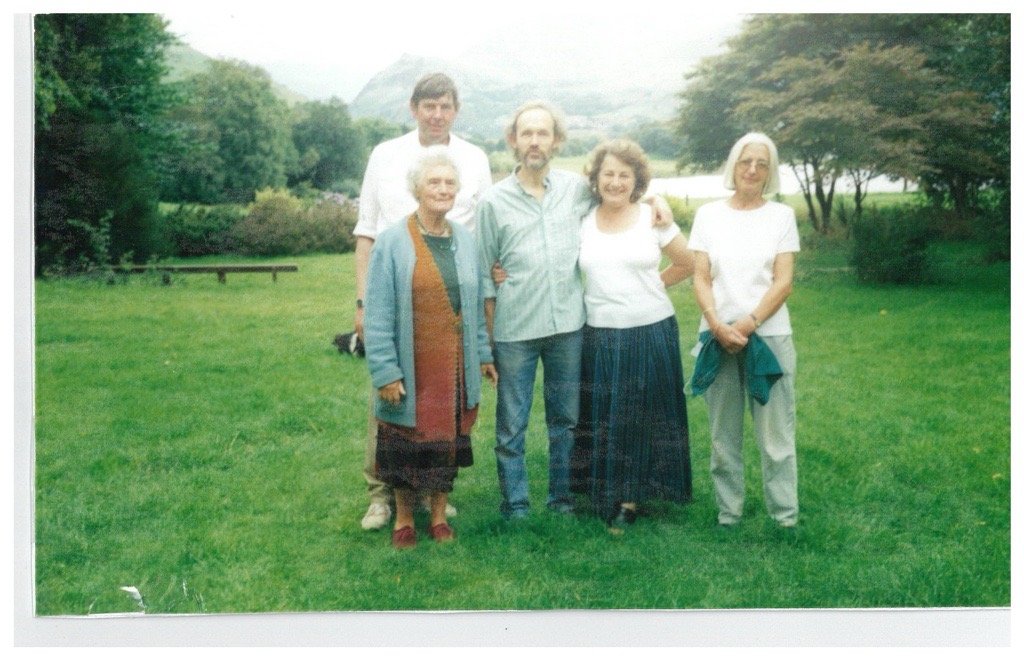Our Story
Trigonos was established in 1996 as a not-for-profit social enterprise, created to provide opportunities for retreat, personal growth, and professional development for individuals and groups alike.
About Trigonos
Established in 1996, Trigonos is a non-profit, socially and environmentally conscious retreat venue, guest house, and biodynamic farm located in the beautiful Nantlle Valley. We offer a peaceful and welcoming environment where guests can relax, learn, and reconnect.
Our tranquil accommodation includes 20 comfortable bedrooms, shared lounges, a library, lovely gardens, and on-site parking. Guests enjoy a delicious vegetarian buffet breakfast, with many ingredients grown on our land using biodynamic principles. A small gift shop is also available on-site.
Set within 18 acres of grounds, Trigonos provides the perfect setting to step away from the busyness of everyday life. Whether you're here for a workshop, course, private event, or a quiet break, we aim to nourish both body and spirit through warm hospitality, nourishing food, and calming spaces.
Now part of Ruskin Mill Trust (www.rmt.org), our ethos is guided by the Trust’s vision and values. Trigonos benefits from the wider support of this charitable organisation, which enables us to continue offering high-quality services while remaining rooted in purpose and care.
We host a wide range of workshops, retreats, conferences, and group stays—supported by four versatile meeting spaces and flexible catering. Trigonos is committed to supporting diverse dietary needs and creating a comfortable and enriching stay for all guests.
Ruskin Mill Trust
Ruskin Mill Trust is an educational charity that operates schools, colleges, and adult social care centres across England, Scotland, and Wales. Founded over 35 years ago by Aonghus Gordon, the Trust’s work is underpinned by its unique method of Practical Skills Therapeutic Education (PSTE)—inspired by the ideas of Rudolf Steiner, John Ruskin, and William Morris.
Today, Ruskin Mill Trust runs five colleges, five schools, two adult care centres, and a dedicated training and research centre, the Ruskin Mill Centre for Practice. For more information, visit www.rmt.org.
Our History
The central building of Trigonos is know as the Plas Baladeulyn (The house between two lakes) and was built as the home of one of the slate quarry owners. In the 1980’s the home was converted to be part of the Richard Wilson Arts Centre and subsequent buildings were constructed to provide more accommodation and meeting/ work space. Trigonos was purchased by Richard Grover, Ros Tennyson and Judy Harris in 1996 who ran it as a social business for over 20 years before it came into Ruskin Mill Trust in 2020.Trigonos was originally developed as the Richard Wilson Arts Centre in the 1980’s. The large house that
-Ros Tennyson, co founder of Trigonos
“Trigonos was individualised rather than institutionalised. That, combined with attention to detail (candles and colourful napkins on the dining room tables, for example) and the sense of nature brought into the different spaces – whether through the views from each of the windows or the little vases of flowers on the bedroom tables. Trigonos provided the backdrop for looking both inwards and outwards. It was valued because it was a space simply to be rather than to be something specific. This was an observation often made by group leaders whose groups seemed to find it very easy to make the place their own during their stay”
The name Trigonos emerged from the shared reflections of its founders, whose ideas and aspirations naturally gravitated toward the concept of “three-some-ness”—perhaps not coincidentally, there were three of them! They were drawn to the strength and balance of the number three, which they felt offered a natural harmony and stability often missing in pairs, which can fall into opposition or conflict.
This thinking was beautifully echoed in the Celtic Triskele—a symbol they discovered on an old piece of ironwork. The triskele, with its three flowing arms radiating from and returning to a central point, represents movement, interdependence, and a dynamic relationship between the whole and its parts. It resonated strongly with the founders' vision of a balanced, three-fold way of working and being.
As Judy pointed out early on, one of the strengths of a triangle is its stability—no matter how it’s positioned, it holds its shape. This insight helped solidify their choice of name: Trigonos, the Greek word for a three-sided figure.
Soon after choosing the name, they came across a modern stained-glass interpretation of the triskele in a shop window. While less delicate than traditional versions, its bold, contemporary design and vibrant colours felt right—symbolising their desire to honour timeless principles while remaining forward-looking and open to the future.
Together, the name and logo represent Trigonos’s foundation in strength, flow, and interconnection—principles that continue to shape its ethos and environment today.





